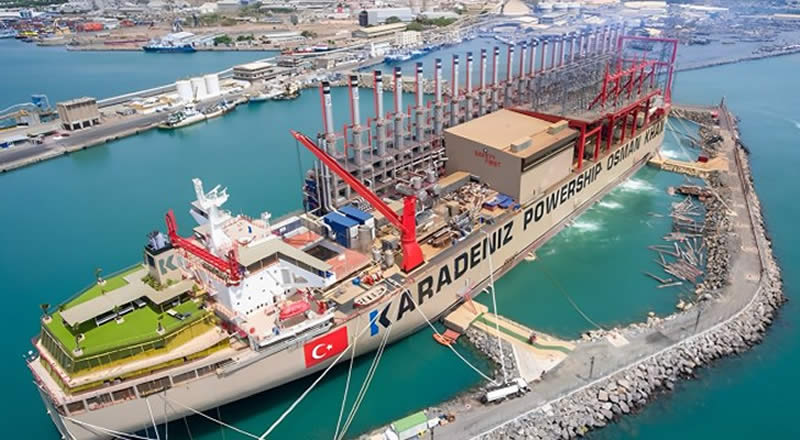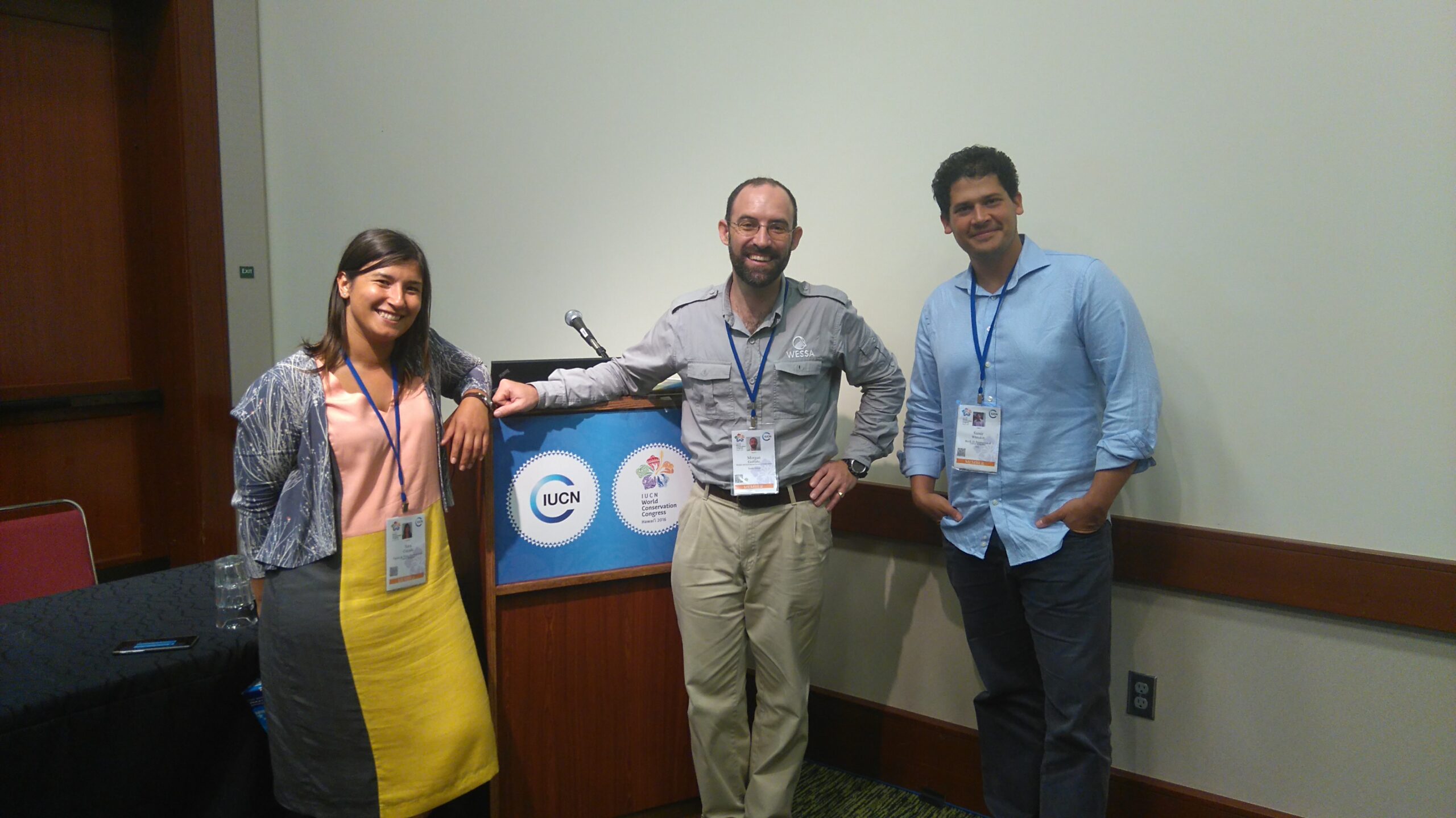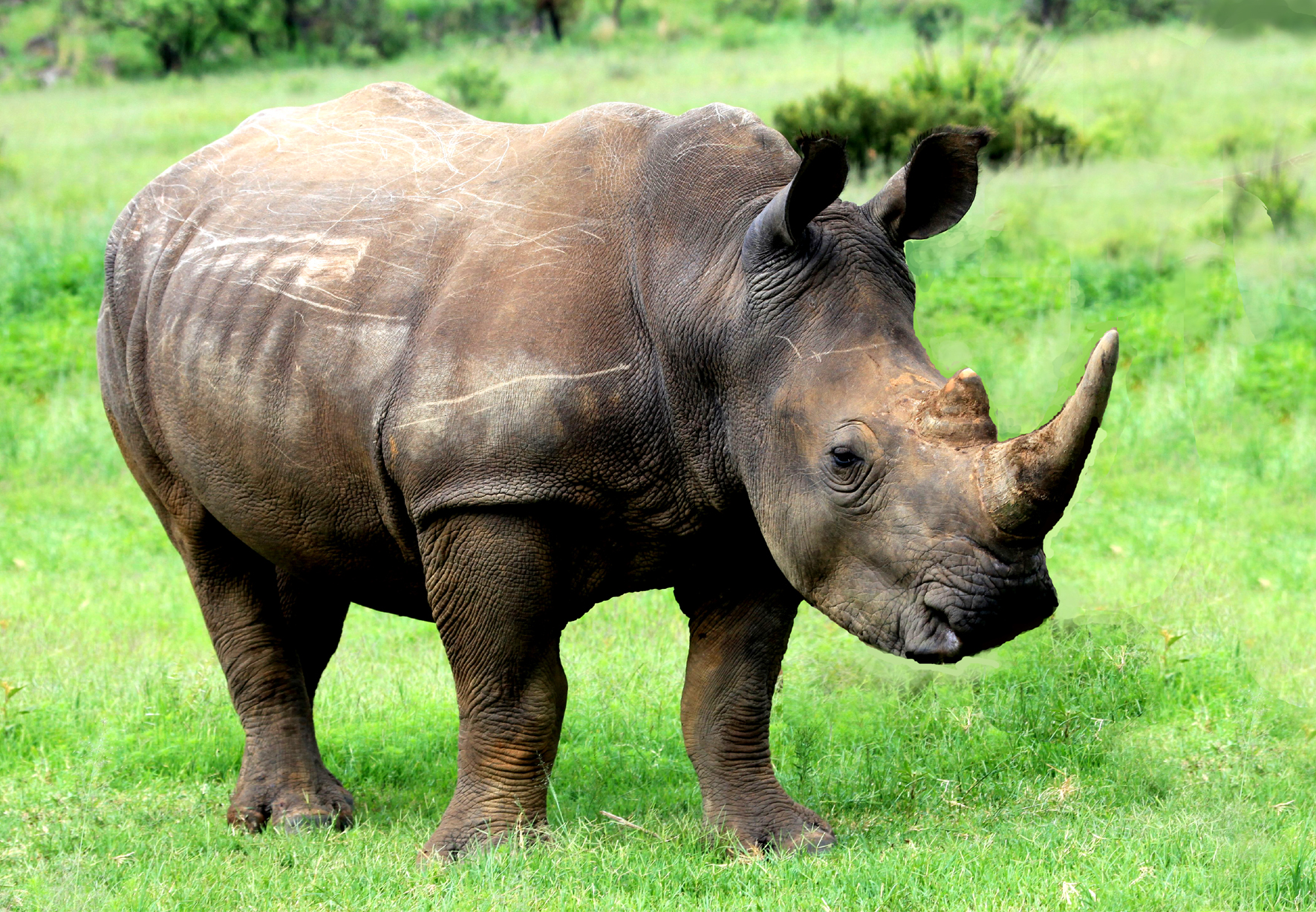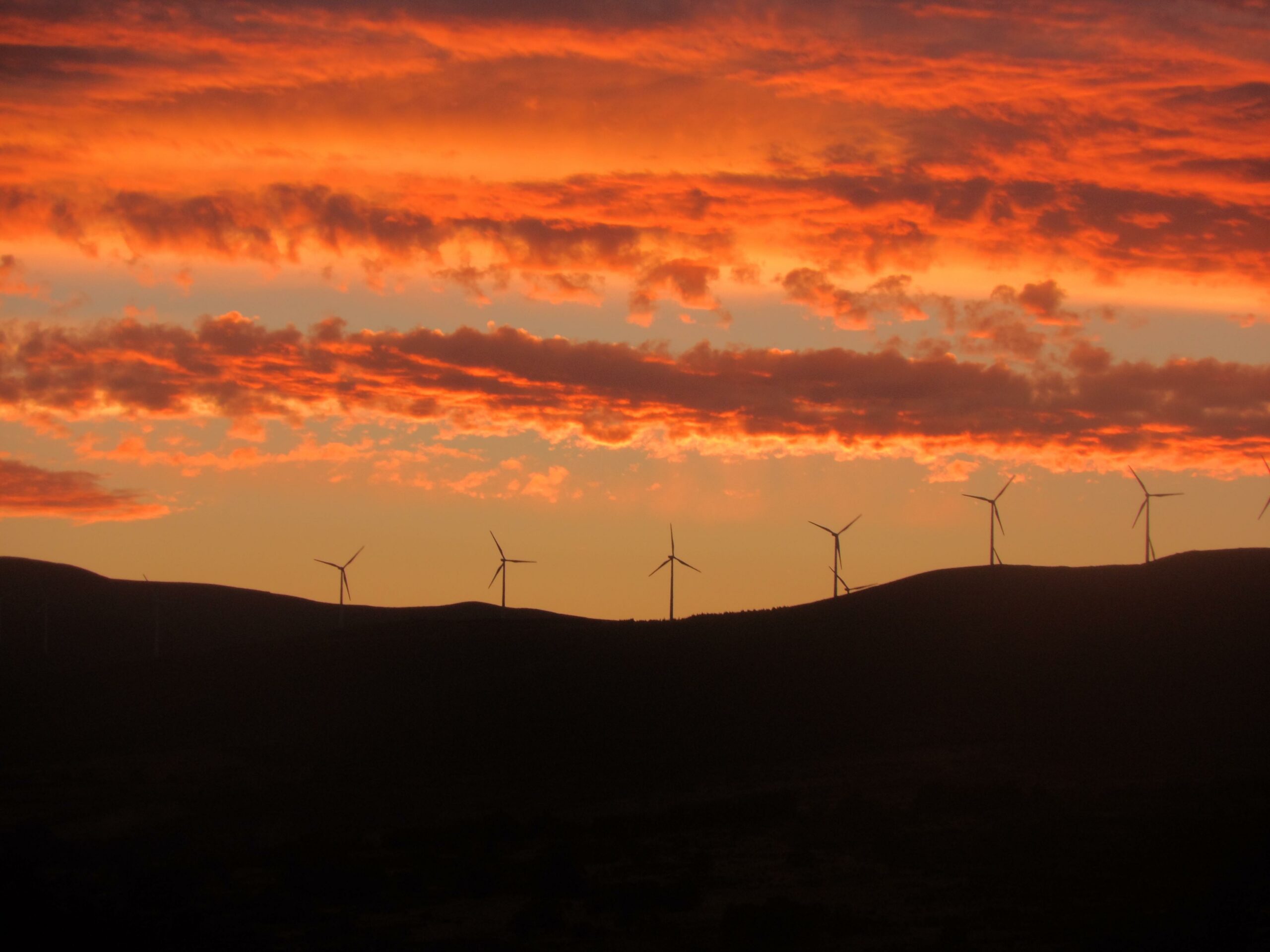
Jul 29, 2024 | Advocacy, Position papers
Pictured above: the Turkish floating power plant Osman Khan in the Ghanaian port of Sekondi Takoradi. (Image: Karpowership, from Daily Maverick site)
WESSA staff and volunteer activists opposed the proposal to mooring floating gas-powered powerstations in Saldanha, Ngqura and Richards Bay harbours, for contracts lasting 20 years.
Our opposition, along with many other NGOs and CBOs was based on the global warming and local environmental impacts, as well as on sustainable development and financial arguments against investing South Africa in a declining gas-energy future.
In July 2024, the SA government announced the withdrawal of these proposals. WESSA is now engaging in other offshore oil/gas seismic surveys and inland gas fracking proposal applications. Donate towards our advocacy work for a just energy transition.

Mar 29, 2024 | Position papers
The one remaining elephant in the Knysna forest is the last of her kind, as her lineage is now functionally extinct. The African penguin is now in such rapid decline that it too could become functionally extinct within the decade.
What do we do?
In the case of the Knysna elephant, the most humane course of action is to leave her alone, let South African National Parks monitor her from a distance as they have, and allow her a peaceful eventual death. We are simply too late – any intervention now will add stress and possibly hasten her demise. In the case of the African penguins, for them to have a chance of survival, we know what must be done. We have to stop grinding their food into chicken meal. And we have to make the seas quieter.
But the mediated attempt by Minister Creecy, who sought to ground her approach in the best science and a collaborative engagement, now seems to have stalled on the intransigence of the pelagic fishing industry, and the eventual closure of areas is likely to be too little too late. Furthermore, it’s unlikely the maritime industry will convert their drive chains to electric simply to save a few penguins. For them there isn’t a saving-the-penguin line in their profit and loss accounts. And so for the penguins it may be a case of too little too late.
Species at risk of extinction
South Africa is a biodiversity hot-spot. According to the 2018 National Biodiversity Assessment (NBA) we have some 67 000 species that find a home within our land and sea boundaries. Of those, just over 23 000 have been threat assessed and some 3 157 (14%) taxa of those assessed are deemed to be at risk of extinction. In simple terms, species like the Roan antelope, Mountain reedbuck, African wild dog, the Short-eared trident bat, the Tree hyrax (dassie), the Western leopard toad, the Pufadder shyshark, the Twineye skate, and the Black rhino, amongst other, stand at the edge of the extinction precipice. But so too does the Drakensberg Suikerbossie. Ever heard of it? It’s a butterfly. Is it worth saving?
The recently released Department of Forestry, Fisheries and the Environment (DFFE) strategy document on the “National Biodiversity Economy” comes at this question sideways. It’s one key imperative is to “leverage the biodiversity economy to promote conservation and species and ecosystem management, thereby ensuring a positive feedback loop”. In short, it’s trying to get conservation to pay for itself. And at its core is the notion of “sustainable use”.
We have to act now
The idea that we can harvest natural resources in a way that doesn’t wipe out the resource, but by limiting the off-take to match the resources natural growth rate ensure the resource remains viable for our children and theirs. The proposed goals of the strategy are to scale up: ecotourism; the “consumptive use” of game; the consumptive use of sea and river based resources (e.g. fish, mussels, seaweed); bioprospecting/biotrade (e.g. pharmaceutic use and food supplementation). And the plan is to do so through “effective and efficient” regulation and policy implementation; increasing capacity, innovation, and technological support; stimulating financial support; and ensuring market access for previously disadvantaged communities. Underlying all of this, is the recognition that the “biodiversity business value chain” needs intact ecosystems, healthy species populations, and genetic diversity. And therein the chicken and egg dilemma. Our ecosystems are not healthy, nor intact, and genetic diversity is decreasing at a rapid rate. But we don’t have the money, nor time, to restore those ecosystems to a sustainable-use level of health. We have to act now.
State owned parks and reserves under strain
The release of the strategy has amplified a few familiar emotive binaries: “pragmatic” hunters vs. “idealist” animal lovers; white privilege and capital vs. black empowerment; competent private conservation vs collapsing and incompetent public conservation; and “good” science vs “paid-for” science. While it’s very true that private efforts have vastly increased species and habitat conservation, that same commercial imperative has led to canned lion hunting, lion bone trade, and the fashionista breeding of black impala and golden wildebeest. There’s no doubt that state owned parks and reserves are under strain, but without state assets the white rhino would not have recovered, nor our elephant populations. Perhaps then, the greatest threat to our biodiversity is not land use, or pollution, or climate change, or alien species, but rather the moral high-grounding that separates us into the typical action-movie script of good guys vs. bad guys. All-of-society solutions are founded on common purpose and collaboration, working in alignment, not on defeating the other side.
But the moral high-grounding aside, at the heart of the strategy lies the assumption that it’s best to set a thief to catch a thief. There is no doubt that the (Western) “economy” is why we have a climate change, pollution, and biodiversity loss that’s collapsing our ecosystems. Indigenous communities typically don’t destroy their ecosystems. And on the global trading floor, Rhino horn has economic value, the Drakensberg Suikerbossie does not.
Who will save the Puffadder shyshark?
So if we give nature a Rand value and put it into a regulated above-board market, will we save our biodiversity? No. Abalone (perlemoen) is the case in point. What if we burn effigies of the Minister, and tar and feather hunters? Will that save the Puffadder shyshark? No. The shyshark is not a targeted species, its slide into museum artifact status is from climate change and our use of the seas that’s destroying its habitat. Similar to why there’s only one Knysna elephant – we’ve destroyed its original habitat. Its retreated into the forest to survive. Ok then, what if we hand back all of the land the colonialists stole to indigenous communities, will that bring back the African penguin? No. We cannot sustain 60 million citizens off indigenous production systems. We can certainly transform value chains to reshape their beneficiaries, but indigenous systems don’t force-feed the excess our agricultural systems depend on.
And therein the difference, nature is cyclical, it works on boom and bust variations and its ecosystems have adapted to the flux. Very little in those systems goes to waste. The western economic model however tries to control the variables, to create an ongoing growth cycle of excess that can be wrapped in single plastic for consumers and sold for an increasing profit. But at some point we run off a limits-to-growth cliff – we live on a finite planet.
Policy position on the sustainable use of elephant, lion, leopard and rhino
The DFFE has also subsequently released its policy position on the conservation and sustainable use of elephant, lion, leopard and rhino’s. Its intent is to end captive lion breeding, to phase out rhino captive breeding, and to enhance leopard and elephant conservation. All of this comes from an extensive consultation process and the commitment to international agreements on climate change and biodiversity loss. Minister Creecy has the unenviable task of steering the sustainable use policy ship through some very loud trophy hunters and animal rights sirens, and should be evaluated on the range of policies, strategies, and initiatives government has driven, not by a single document or article. But this is not meant as a defence of the minister, rather to point to a point so obvious we all rush past it. Our ecosystems are failing because of us. We have to change the way we live. Which means we have to think differently about our place within the planet. We are part of nature not separate from it. The minister cannot do this alone.
Dr Gary Koekemoer (Chairperson WESSA EGC – Environmental Governance Committee)
in response to Daily Maverick

Mar 27, 2024 | Advocacy, Position papers
As a whole we welcome the DFFE’s publishing of the NEMBA Draft National Biodiversity Economy Strategy. We believe it a significant and pragmatic step forward in addressing many of the challenges our natural heritage faces and ensuring the constitutional imperative that our children inherit a healthy ecosystem. As with any policy statement in a diverse country such as ours, it cannot please everyone, but we would encourage persons to consider the detail of what it proposes and whether it has the potential for significantly improving upon the current unsustainable status quo
Terrestrial and marine biodiversity best in the world
South Africa is blessed with terrestrial and marine biodiversity that is of the best in the world. Since humanity’s standing upright hundreds of thousands of years ago we have been dependent on natural resources and “ecosystem services” for our wellbeing. But that ecosystem is now threatened by human activity arising from the lifestyles and economies we have created off the backs of those resources. The science is clear, climate change and biodiversity loss represent an existential threat to human wellbeing. We have to urgently respond to the change by in turn transforming our behaviour and systems to both secure and restore those natural assets and their services that are integral to our survival.
But we are also challenged by the legacy impacts of colonialism and apartheid, and a global capitalist system that privileges the haves and supresses the have-nots through a consumerist orientation. Those systems have resulted in a prevalent conservation model in South Africa that fences off large tracts of lands and criminalises traditional hunting and gathering activities that were integral to many communities livelihoods and cultural practices.
Pragmatic reality
The pragmatic reality too is that South Africa already has a thriving biodiversity “economy”, but much of that happens in the shadows, supporting international criminal networks that have become expert at extracting and transporting high-value natural resources outside of South Africa. Rhino horn, abalone, pangolins, and succulents are amongst the more well-known examples that threaten those species and their habitats. Alongside those criminal activities we have commercial and “legal” exploitative practices of our wild spaces and species that have given rise to canned lion hunting, the lion bone trade, bush meat trade and the breeding of “fashionable” variants such as black impala and golden wildebeest.
None of those serve the integrity of our ecosystems. And of great concern is the unsustainable exploitation of fish stocks and the “gold rush” approach to offshore oil and gas reserves that fundamentally threaten our rich marine biodiversity. As things stand, we are likely to see the African penguin go functionally extinct in our lifetimes due to in the main over-fishing of their food stocks. African penguins are sentinel species, they are indicators of ecosystem health, and the need to conserve them is not because they are cute, but because we have to restore the ecosystems they depend on to do so, and in so doing help ourselves.
Something must be done. Urgently. The status quo is untenable.
Strides forward in public and private spheres
But while destructive practices abound, South Africa has made great strides in both the public and private spheres to secure and restore our biodiversity. There is no doubt that game ranching, private reserves, and conservancies have made a significant contribution to conserving wild spaces and species. There is no doubt that ecotourism generates significant benefits to the overall economy, and that its full potential has not been realised. And for those of us opposed to killing animals, the uncomfortable truth we must face is that trophy hunting and biltong/recreational hunts have made a positive difference to species wellbeing overall in the past. What the hunting fraternity in turn need to face is that consumptive preferences are changing, and South Africa’s wildlife “brand” is threatened by changing perceptions of what is socially acceptable. There may be money in trophy hunting now, but that’s changing rapidly, and we need to be looking at alternatives that have the same effect.
Support of sustainable development, natural justice, and collective stewardship
Guided by our principled support of sustainable development, natural justice, and collective stewardship, WESSA will be submitting extensive comments on the draft strategy. For instance we do not support trade in rhino horn because it leads to the domestication of such species and we lack the necessary governance and policing infrastructure to ensure such trade remains legitimate. We support wholeheartedly the dropping of fences and the creation of wild space corridors, but accept that in specific cases fences are required to keep human-animal conflict to a minimum. We would point to the Babanango Game Reserve and the Tsitsikamma National Park amongst many others as to how conservation and local community beneficiation can work.
We would however caution the drafters of the strategy that seek with good intent to make conservation “pay its way” and reduce the value of our biodiversity to a balance sheet entry. While it may be tempting to show biodiversity’s Rand value, it is in part that thinking that drives the notion that nature is there to solely serve our interests. The strategy may of necessity be focused on the “economy” of biodiversity, but it must form part of a raft of strategies that addresses the non-economic value and approach to our wild spaces and species.
Our ecosystem is a complexity. We are part of nature not separate from it. And it requires all of us, or at least a sufficient majority, to make sure we not only conserve what we have but rethink our relationship with the planet and the diversity of species we share it with. The strategy needs refining, but it is in our view a useful and necessary step forward.
Dr Gary Koekemoer (Chairperson WESSA EGC – Environmental Governance Committee)
Cindy-Lee Cloete (Acting CEO WESSA)
In response to The Sunday Times

Nov 4, 2022 | Position papers
WESSA is strongly engaging in the Climate Change space, as we seek to Educate, Advocate and Act on Climate Action. Last Saturday, the SA Institute of International Affairs (SAIIA), WWF-SA and WESSA partnered to bring South African youth from all around the country together, to develop a call to our political leaders for climate change action and a just transition. Gathered at venues in Durban, Cape Town and Johannesburg, as well as a strong contingent of virtual participants, our youth discussed debated and developed a statement of recommendations for the South African government delegation to negotiate towards at COP27. Read the COP27 National Youth Statement handed to Minister for the Environment, Minister Barbara Crecy, on Monday.
SAIIA has generously shared a COP27 access pass with WESSA, allowing us entry to observe the 2nd week of the state negotiation sessions (Blue Zone) at COP27. We are honoured and excited to be representing our organisation, our members and citizens at this global meeting for climate action. WESSA did consider the human rights situation in Egypt in making this decision. WESSA’s Strategic Lead: Advocacy, Morgan Griffiths, has been tasked with representing us. Morgan has previously represented WESSA at the 2016 IUCN World Conservation Congress, where he co-led a session on Human Capacity Development in the Biodiversity Sector. The primary objectives of WESSA attending COP27 are to gain experience and deeper understanding of the COP event and its processes; and networking in the climate action space. Morgan will also attend events in the Green Zone, where many civil society dialogues and advocacy engagements take place.
As can be expected, our participation at COP27 will incur dollar costs, and WESSA is asking for financial contributions to support our attendance there.

Sep 19, 2022 | Position papers
WESSA has praised the proposed White Paper on the Conservation and Sustainable Use of South Africa’s Biodiversity. To read our submission of comments, amendment suggestions and concerns with this proposed legislation, please see LINK.
View Here

Nov 24, 2021 | Position papers
The editor
Fin 24
Sir/Madam
WESSA understands the concerns that many people currently working in the coal, oil and gas sectors might have when there is talk of changing to a more renewable energy-based economy.
Employees around the world are dealing with this too as “decarbonising” becomes more urgent to avoid the worst impacts of climate change and deal with new global trading conditions. South Africa has good solar and wind resources and these will not run out as coal, gas and oil do.
Though they do not need to be mined they will provide many jobs at various skill levels and these will be distributed more evenly around the country than the coal mines and power stations of Mpumalanga and Limpopo. This should allow for a more widely resourced electricity grid with the opportunity for community co-ownership of new installations.
Eventually all electricity and energy for transport will have to come from the sun, wind and a few other sources like tidal flows and waves. This means lots of development of new infrastructure and much less pollution of air, soil and water. South Africa is Africa’s biggest carbon emissions polluter at the moment but we could change that round to being one of the main producers of clean energy.
Unfortunately, if we do not take climate change and its impacts seriously we won’t have good reason to expect large loss and damage pay-outs from Western and Northern polluters. South Africa, already an arid country with a long coastline, is especially vulnerable to drought, crop failure, wildfires, flash floods and storm surges which can further undermine an already struggling economy.
Like the oil industry in other parts of the world South Africa has also started exploring non-conventional sources of fossil fuels such as off-shore gas and oil and hydraulic fracturing (fracking) for gas in places like the Karoo. There have even been proposals to mine coal in protected areas or right next to communities. Such activities are not sustainable as they disrupt or pollute, water supply, reduce biodiversity and negatively impact livelihoods like fishing as well as human health.
A just transition should mean a steady moving away from coal and other fossil fuels as old mines and power stations close giving workers a chance to learn new skills and do more interesting and cleaner work. Humans have had to make this sort of change for thousands of years as new technologies develop. It’s our turn now and we can do it.






